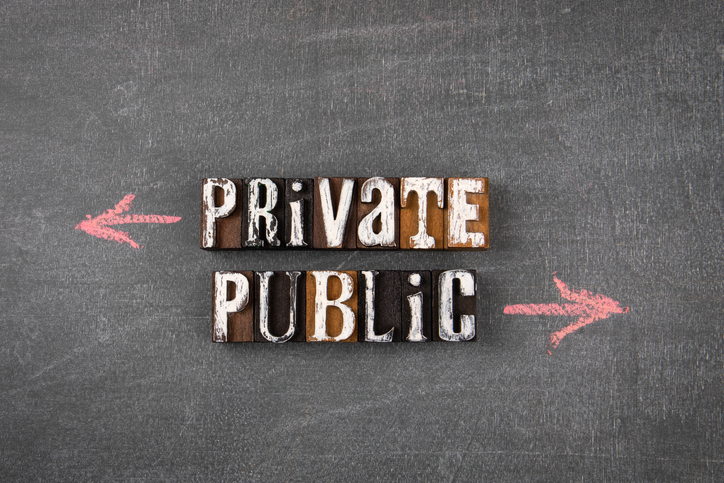What are the differences between a private and a public company?
 This guidance is for business owners, directors, company secretaries, and investors who want to understand how private limited companies (Ltd) differ from public limited companies (PLC). Knowing the distinction can help you choose the correct structure when forming a company or considering future growth and funding options.
This guidance is for business owners, directors, company secretaries, and investors who want to understand how private limited companies (Ltd) differ from public limited companies (PLC). Knowing the distinction can help you choose the correct structure when forming a company or considering future growth and funding options.
What Is the Key Difference Between Private and Public Companies?
At a basic level, the distinction lies in share ownership and availability:
- Private companies cannot offer their shares to the general public. Shares are usually held by a small number of individuals—often directors or founders—and the company’s articles of association typically restrict the transfer of shares.
- Public companies, on the other hand, can offer their shares to the public and may be listed on a recognised stock exchange, such as the London Stock Exchange.
However, the differences go far beyond this. Public companies face more regulatory obligations, less privacy, and stricter governance rules than private companies.
Why Do Some Companies Choose to Remain Private?
Despite the potential to raise significant capital by becoming a public company, many businesses choose to remain private. This is often due to the increased scrutiny, reporting requirements, and reduced flexibility that come with public status.
For example, some large companies, such as Boots (which re-registered as a private company following its 2006 merger with Alliance Unichem), have opted to avoid the additional obligations associated with public company status.
What Are the Legal and Practical Differences Between Private and Public Companies?
Here are some of the key differences that apply under UK company law:
Formation and Constitution
- A public company must state in its constitution that it is a public limited company.
- A public company must obtain a trading certificate from Companies House before commencing business. This confirms that it has allotted share capital of at least £50,000, or the prescribed euro equivalent.
Share Capital and Allotments
- Public companies must ensure that at least one-quarter of the nominal value of each share and all of any premium is paid up before allotting shares.
- A valuation by an independent expert is required if shares are allotted for non-cash consideration.
- Public companies cannot:
- Purchase or redeem their shares out of capital.
- Reduce their share capital using a solvency statement.
- Give financial assistance for the purchase of their own shares.
Corporate Governance
- Public companies must have at least two directors and must appoint a company secretary. Private companies need only one director and are not required to appoint a secretary (though many still choose to).
- Only private companies may dispense with general meetings and pass resolutions in writing.
- Public companies must hold Annual General Meetings (AGMs); private companies are not required to.
Reporting and Disclosure
- Private companies may benefit from reduced reporting requirements, including the ability to file abbreviated accounts if they qualify as small.
- Public companies are subject to stricter disclosure obligations, particularly if listed, and must comply with additional rules under the Financial Services and Markets Act 2000 (FSMA 2000), as well as the Companies Act 2006.
Companies Act 2006: The primary piece of legislation governing the formation, operation, and duties of UK companies, covering directors’ responsibilities, shareholder rights, and reporting standards.
FSMA 2000: This Act regulates the financial markets in the UK, including the public offering of shares, and imposes additional requirements on companies listed on recognised markets.
When Should a Company Consider Re-Registering as a Public Company?
Re-registering as a public company may be considered when a business is ready to raise capital from the public, attract institutional investment, or list on a stock exchange. However, this should be weighed against the higher compliance costs and greater public exposure that come with PLC status.


